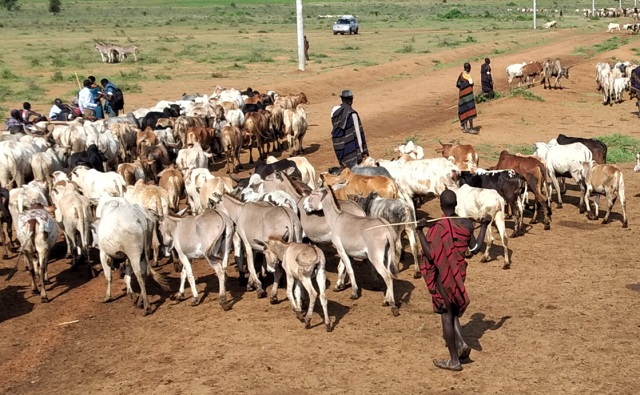
Kampala, Uganda | THE INDEPENDENT | The Intergovernmental Authority on Development (IGAD) member states have finally endorsed the implementation of a roadmap for the IGAD transhumance protocol that will allow cross border pastoralism.
IGAD member states of Djibouti, Ethiopia, Kenya, Somalia, South Sudan, Sudan and Uganda all agreed to start the process in a ministerial meeting held today at the Best Western Hotel in Entebbe to endorse the protocol that will ensure regulation of pastoralism across the region.
In 2019, Somalia and Ethiopia declined to endorse the protocol as they questioned livestock movement at night and access to services by the pastoralists from another state. However, the two countries endorsed the process today.
If enforced, the protocol will allow for free, safe, orderly cross border mobility of livestock and herders in search for pasture and water. The protocol will also ensure members invest adequate resources to pastoral regions and institutions managing them. It will also result into harmonization of laws and policies related to pastoralism. The council of ministers are expected to sign the protocol by end of this year, and it could come to force in January next year.
According to Muchina Munyua, the director of IGAD centre for pastoral areas and livestock development said initially the two countries refused to sign, but they were convinced. He says they were able to understand that livestock movement is better at night when the temperatures are low.
Munyua also says the access to services by pastoralists in another state cannot be stopped, and this was also cleared and the two countries finally understood and endorsed.
The endorsing of the implementation of the roadmap will now lead to the popularizing and domesticating the protocol which is the first phase followed by, strengthening of good governance for cross border clusters, mapping and designing cross border corridors and resources, investment in pastoral areas and complementary livelihood resources and monitoring cross border mobility, community engagement along regular pathway and reporting. These will happen from 2021 to 2030.
Sheikh Hussein Mohamud, the Minister for Livestock, Forestry and Rangeland in Somalia says his country is committed to the protocol however added that the protocol should bring more benefits than problems.
Moses Kizige, the Minister of State for Karamoja Affairs says it is a great thing that the roadmap has finally be resolved after a failure last time. He called on the member states to convince their Ministers of Foreign Affairs to also endorse the protocol expeditiously so it can be implemented.
Kizige says already the Pokot from Kenya graze in Amuria district while the Turkana people also graze in Amudat. He says the protocol will help establish big dams and health facilities since the pastoralists who come move with their families.
Bright Rwamirama, the Minister for Animal Husbandry says the future lies on providing safety nets for the pastoral communities. He says that more should be provided to IGAD to address issues of water to tame nature.
According to the IGAD chair Adil Idris, who is also the Minister of Agriculture and Natural Resources in South Sudan, he says that the good thing is that the Heads of State have the political will to see the protocol implemented.
The IGAD region has close to 20 million pastoralists who contribute about 100 million dollars annually to the region.
It is hoped that with the implementation of the protocol, cattle rustling, conflicts related to grazing in another states territories, grazing while armed among others are curbed.
******
URN
 The Independent Uganda: You get the Truth we Pay the Price
The Independent Uganda: You get the Truth we Pay the Price


